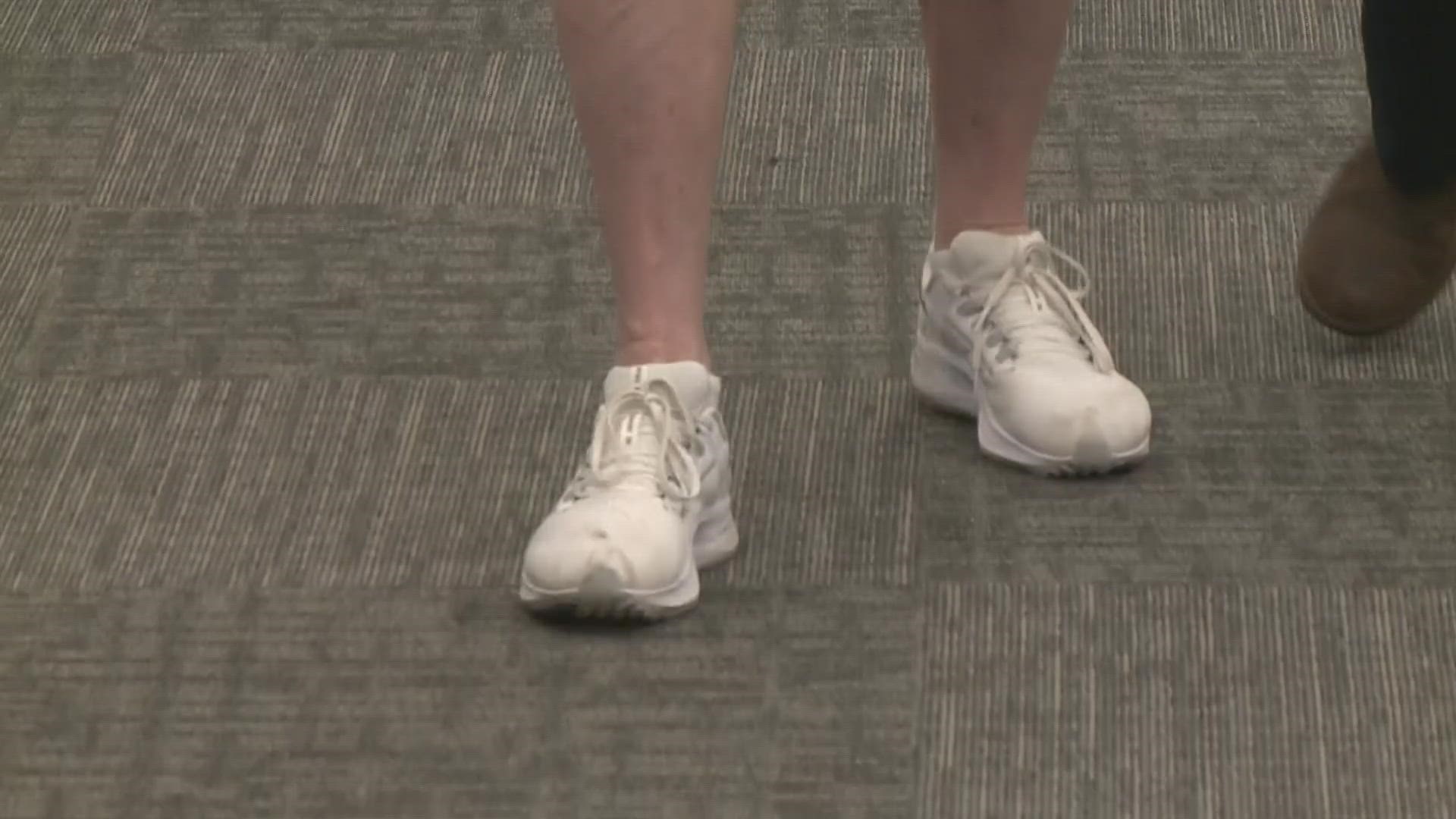KENNEBUNK, Maine — According to the American Cancer Society, Maine could see a little more than 10,000 new cases of cancer this year alone.
But the first nationwide comprehensive cancer rehabilitation program is helping thousands of Maine cancer survivors get their lives back. Many patients are able to survive the disease, but the side effects of treatment can take a huge toll, both physically and emotionally.
Erinn Needham is building her upper body strength. The 32-year-old mother of two had a double mastectomy after being diagnosed with an aggressive form of breast cancer a year and a half ago. She underwent six rounds of chemotherapy, surgery, and more chemotherapy. The treatment left her exhausted and unable to pick up her toddlers safely.
"Raise your hands all the way up to the ceiling," physical therapist Nikki Langstaff said.
Under the watchful eyes of Langstaff, Erinn was able to hold her kids again in six weeks.
Langstaff is the director of the ReVital Cancer Rehabilitation program at Saco Bay Orthopedic & Sports Physical Therapy. Therapists undergo six months of special training to help cancer survivors recover their strength, balance, and mobility after the debilitating effects of cancer treatment, which impacts between 60 to 90 percent of patients.
"Are they functioning like their normal self? [We] try to get them functioning at their best."
John Massaro started building up his strength after going through four months of chemo for stage four non-Hodgkins lymphoma. The treatment left the 82-year-old, a lifelong runner, tired and weak. He said the rehab here later helped him recover quickly following knee replacement surgery.
"I breezed through the surgery, and I think I was functioning in a week," Massaro added.
The program, which is nearly five years in, has grown to 25 physical and occupational therapists with several thousand patients in Maine receiving treatment, and about 10,000 across the country.
Therapists refer patients to nonprofits like the Dempsey Center and Maine Cancer Foundation for support and resources. The program tracks patient outcomes, and close to 90 percent see improvements in getting back to daily function. That data is shared with oncologists, with the hope of referring more patients with the hope of cancer rehab becoming a standard of care one day.
As for Erinn, she is now training to do a half-marathon in May.
"Being able to focus on something I can control after feeling that I lost control, is such a powerful thing," Needham explained.

